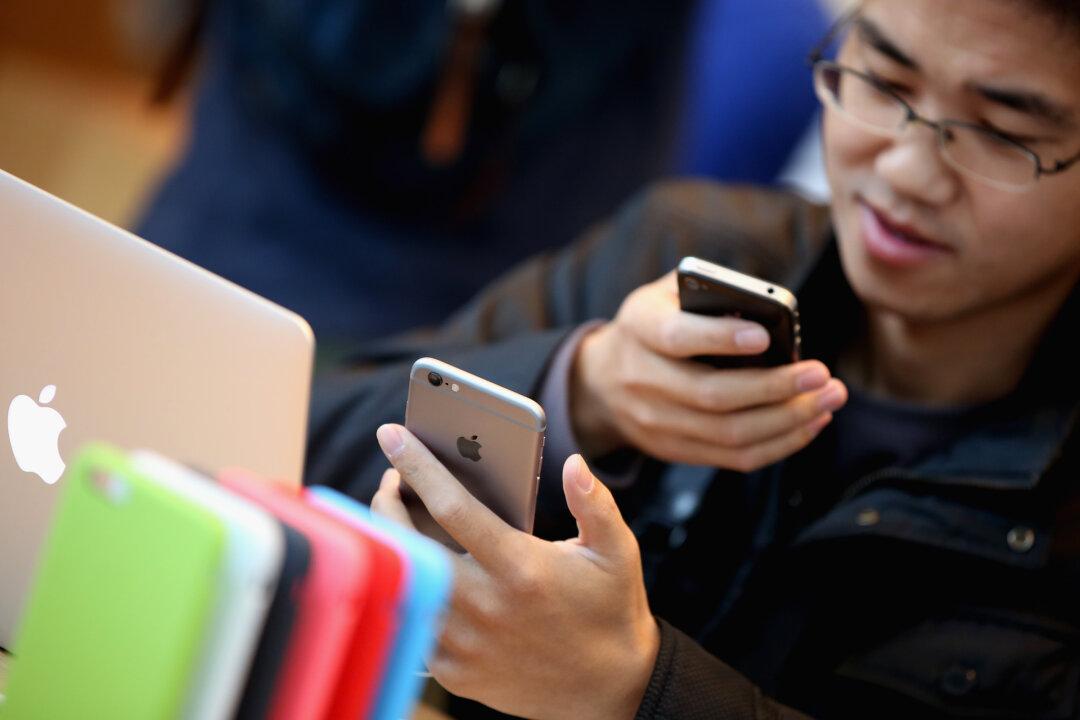iPhone 6 Patent Fraud Case in China Complicated Hacked Photos
During the time that a Chinese company was filing a patent that it say Apple’s iPhone 6 violates, hacked photos of Apple’s phone showing the contested design were released in China.

A man sets up his new iPhone 6 inside an Apple store on Oct. 17, 2014 in Beijing, China. A Chinese firm claims Apple violated its patent for the design of the iPhone 6. Feng Li/Getty Images
|Updated:
Joshua Philipp is senior investigative reporter and host of “Crossroads” at The Epoch Times. As an award-winning journalist and documentary filmmaker, his works include “The Real Story of January 6” (2022), “The Final War: The 100 Year Plot to Defeat America” (2022), and “Tracking Down the Origin of Wuhan Coronavirus” (2020).
Author’s Selected Articles




